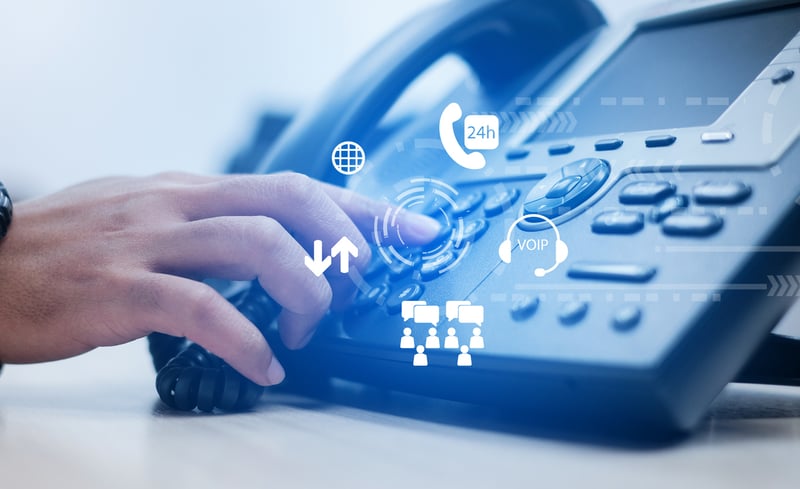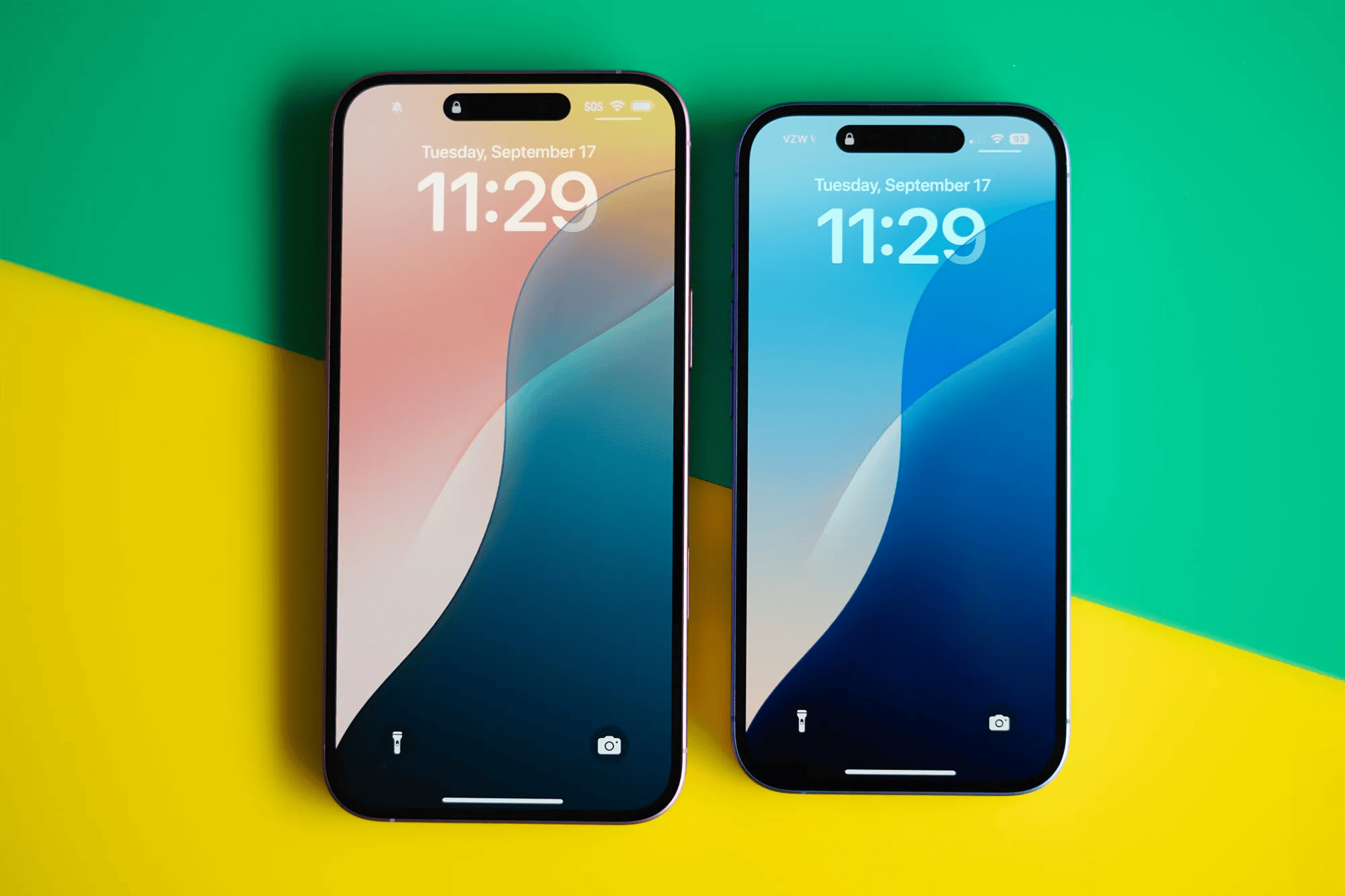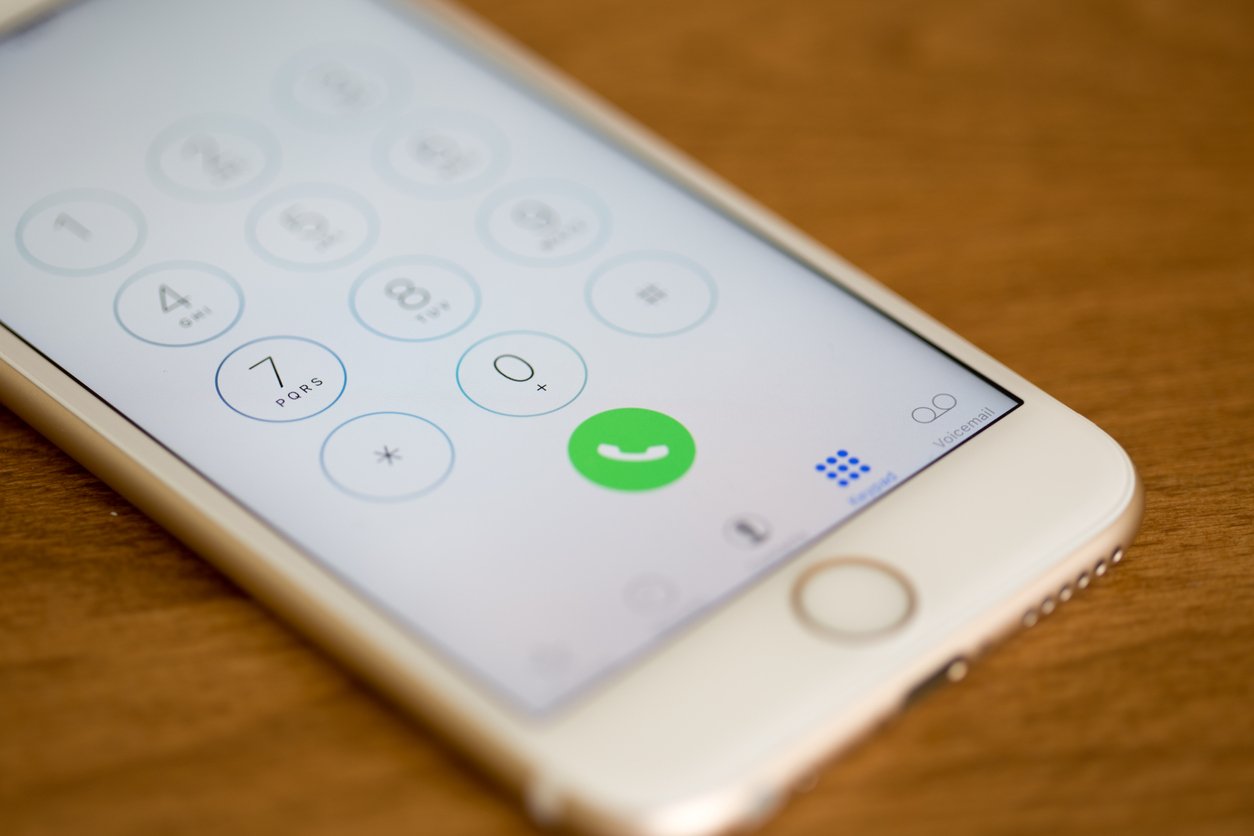
Top 5 Progressive Dialer Market Trends in 2025
 Updated on
Updated on
 By Rob Marquez
By Rob Marquez
Rob Marquez
Originally from Southern California, Rob moved to Denver over 4 years ago to join the Ringy team as a Mobile Engineer. Rob received his BS and MS in C...
learn more
Rob Marquez
Originally from Southern California, Rob moved to Denver over 4 years ago to join the Ringy team as a Mobile Engineer. Rob received his BS and MS in C...
Table of Contents
Table of Contents
If you're in sales, customer service, or outbound call centers, you've likely heard of progressive dialers—but are you keeping up with how they're evolving? In 2025, the landscape of progressive dialing is shifting rapidly, with new technologies, smarter automation, and a growing debate over predictive vs progressive dialers.
Whether you're hunting for the best progressive dialer software, weighing paid vs free predictive dialers, or just curious about the latest innovations, we've got you covered.
In this article, we'll look at the top five progressive dialer software solutions and the trends shaping progressive dialers in 2025, helping you stay ahead of the curve.
Let's get dialing!
The 5 Best Progressive Dialer Software on the Market
Alright, now you know what you're looking for, so let's make a few suggestions to get you started.
We aren't going to sugarcoat it; we listed our own CRM first.
We know you're raising your eyebrows right now but hear us out and hopefully, you'll agree why we deserve serious consideration.
Ringy

Ringy is an excellent business platform that features a top-notch progressive dialer with click-to-call functionality. It can improve your lead engagement, shorten your sales cycle, save time, improve productivity, and increase your ROI.
Check out some of its best features:
- Cost-effective
- All-in-one CRM - not just a dialer
- Smooth automation
- Analytics, client notes, customer profiles
- Team members able to pass calls to each other
- Call tracking, call routing, and call recording
And you can grab all of that goodness for only $109 per month with unlimited users and access to all future updates.
Sounds too good to be true? We promise you it isn't.
Talkdesk

Talkdesk is a cloud-based contact center software with preview and progressive dialers.
It offers quick, clutter-free software that holds your contacts in a large database. You also get access to customizable features and a dashboard with AI-driven processes and great call transferring.
For $85 per user per month, Talkdesk can quickly grow more expensive if you want anything other than the most basic features.
Plus, some reviewers say it's pretty complex to navigate if you aren't an IT nerd. Especially its integrations, which some say aren't easy to use and require knowledge of coding to get properly connected.
NICE CXone

Nice CXone (formerly Nice inContact) contact center solution software is a great option for progressive dialers.
Positive reviews say it has easy transferring and no lag. It's straightforward to navigate and leaders find it simple to manage multiple employees at once.
Though some people say it doesn't have the best integration with their CRM.
Pricing for this progressive dialer starts at $71/user/month for their CXone Mpower Digital Agent and goes up from there.
Also, quite a few people complain about unskippable pop-ups interrupting their calls.
Five9

Five9 is primarily a service to transfer in-office auto dialer users to cloud-based auto-dialers.
It's helped many companies take a step into the future by going into the cloud, which is pretty much essential in 2025.
People like the integration with Salesforce and are quite pleased with its international capabilities, like its international call pricing and language translation (including English, German, French, Spanish, Portuguese, and Polish options).
That said, it's rated pretty low for ease of use, with some businesses reporting spending hours on the phone with the help desk just to get it set up.
Five9's pricing plans start at $119 monthly on a 36-month contract with easy monthly payments, but it also offers an option for you to get a quote through its website.
PhoneBurner

PhoneBurner is a progressive dialer first and an "anything else" second.
Ease of use is the major point of PhoneBurner. It's user-friendly with a little-to-no learning curve. Importing leads, dialing out, and viewing reports are all pretty smooth and easy.
However, its analytics capabilities seem to be lacking, with email tracking, text engagement tracking, and phone number compiling either missing or buried and hard to find.
Also, it's rather expensive, although it does offer a "free trial"...remember freemium? Once you actually pay it's $140 per seat billed annually. Unless you get the recommended bundle—then it's $165 per seat billed annually.
4 Key Considerations When Choosing a Progressive Dialer

Now, we know you're excited, but we don't want you just running off to buy the first progressive dialer you see.
After all, we care about your success.
So, we're going to list the major considerations you should put into choosing a progressive dialer. That way, you can get the best one for your business (and money).
1. Scalability and Business Fit (Small Business vs. Enterprise)
One of the first things to assess is whether the progressive dialer fits your business size and call volume. A startup or small sales team will have very different needs compared to a full-scale contact center.
|
Feature |
Small Business |
Enterprise |
|
Call Volume |
Low to moderate |
High, with thousands of calls daily |
|
Team Size |
Small teams (5–50 agents) |
Large teams (100+ agents) |
|
Cost Sensitivity |
More budget-conscious, often considering free predictive dialers or affordable solutions |
Focus on ROI and performance rather than upfront cost |
|
Features Needed |
Basic automation, CRM integration, call recording |
Advanced analytics, AI-powered dialing, multi-channel outreach |
|
Compliance Requirements |
Basic regulatory adherence (e.g., TCPA for U.S.) |
Strict global compliance (e.g., TCPA, GDPR, HIPAA) |
If you're a smaller operation, you might find that simpler progressive dialing solutions meet your needs without unnecessary complexity. Meanwhile, enterprises often require advanced automation, integrations, and scalability to handle large volumes of calls efficiently.
2. Integration With CRM, Voip, and Analytics Tools

A good progressive dialer software shouldn't work in isolation. It needs to integrate seamlessly with your existing CRM, VoIP systems, and analytics platforms to maximize efficiency.
- CRM Integration: Ensures that customer data is automatically updated, reducing manual work.
- VoIP Compatibility: Allows smooth calling with minimal delays and lower costs.
- Analytics & Reporting: Helps track call performance, agent productivity, and customer engagement trends.
If your dialer doesn't integrate well, you might end up with a clunky workflow that wastes more time than it saves.
3. Compliance With Regulations (TCPA, GDPR, Etc.)
Regulations around outbound calling are tightening, making compliance non-negotiable. A progressive dialer must help businesses follow legal guidelines, such as:
- TCPA (Telephone Consumer Protection Act – U.S.): Governs robocalls and requires consent for auto-dialed calls.
- GDPR (General Data Protection Regulation – EU): Ensures customer data privacy and opt-in requirements.
- DNC (Do Not Call) Lists: Must automatically scrub numbers that should not be dialed.
Failing to comply can lead to hefty fines, so make sure your dialer has built-in compliance features, like call recording opt-ins, time-zone restrictions, and consent management tools.
4. Pricing Models and Total Cost of Ownership
The cost of progressive dialer software varies widely, with pricing models that include:
- Per-User Pricing: Charged per agent using the system. Best for small teams.
- Pay-Per-Minute: Costs depend on call volume. Works well for businesses with fluctuating outbound call needs.
- Flat-Rate Subscription: A fixed monthly fee, ideal for enterprises with high call volumes.
- Freemium & Free Predictive Dialers: Some providers offer free basic versions, though they often come with limited features.
When choosing a progressive dialer vs predictive dialer, consider not just the upfront cost but also factors like support fees, compliance costs, and potential downtime risks. A cheaper solution may end up costing more in the long run if it lacks crucial features.
What is Progressive Dialing?
Let's start with auto dialers in general.
Salespeople used to have to manually make calls, but you know that the more calls you can make per hour the higher the number of calls you can potentially convert into sales.
Check out these stats:
- Only 2% of cold calls end in success, so it pays to be quick and efficient
- In a more manual setting, 75% of your agent's time is spent tediously searching for information
- That means that a lousy 25% is spent actually having meaningful interactions with clients
And that means a lot of multi-tasking. Multi-tasking can leave you fried. Your sales reps only have so many hands.
That's where auto dialers come in - a system that automatically dials customer phone numbers for your sales reps. And having an automatic call system can help in many ways:
- Reduced idle time
- Increased agent talk time
- A better lead conversion ratio
- Real-time monitoring, reports, and analytics
- Improved operational efficiency
Auto-dialers let your agents leave the tedium to the bots, so they can concentrate on fine-tuning their pitch.
As for progressive dialing, this is a type of auto dialer that only makes a call when an agent has ended their previous call and signaled that they're ready for a new one.
Let's go deeper.
Predictive Dialer vs Progressive Dialer

The two dialers above represent different types of auto dialers with different uses. Which one you use all depends on your problems and goals.
A predictive dialer is an auto dialer that places a call before your agent is done with their last one, using technology that estimates when they'll be done based on data.
This is optimized for speed.
A progressive dialer, on the other hand, waits until an agent is finished with a call before placing a new one. Once the agent signals that they're ready, the call is made.
They both ultimately help with every sales call you make.
Compare predictive dialing vs progressive dialing in these two scenarios:
Progressive
- The agent answers the call
- The agent handles the call
- Agent hangs up the call
- Agent signals that they are ready for another call
- Dialer makes the call
- The agent answers the call
VS.
Predictive
- The agent answers the call
- While the agent handles the call, the dialer determines how long until the agent will be done
- Dialer makes the call
- The agent may answer the call if they're done with the last one
See the difference? And they're both pretty darn good at what they do - it just depends on your company's personal objectives.
Let's look at the benefits:
|
Progressive Dialers |
Predictive Dialers |
|
Improve customer engagement |
Interact with more leads in less time |
|
Increase sales conversion |
Reduce time between calls |
|
Decrease call abandonment |
Easily manage large-scale campaigns |
|
Automate and expedite outbound calls |
Automate and expedite outbound calls |
It depends on what you're looking for. A lot of businesses are opting for progressive dialers just because call abandonment is a serious issue if an agent isn't there to answer. If a customer or client has to hear an automated message instead of a representative, they might just walk.
Did you know that 79% of Americans would rather speak to a human?
Not having a live agent on the other end of that call could be a dealbreaker.
Paid or Free Predictive Dialer? Which is Better?
"Free" is an attractive word. It seems like every company loves offering free things and auto dialers are no exception.
Free is great at first glance - like samples at the grocery store. But when you take that tiny square of brownie, are you really satisfied? Or is that just to entice you to buy the box of brownie mix?
Usually, free dialers are just a "freemium" plan. It gives you a little taste of them, but for your company to get the most out of the service, you're going to have to pay up eventually. Often, the "upgrade" ends up being more expensive in the long run.
I mean...do you give away your services or products for free with no ulterior motives?
Key Differences Between Free and Paid Solutions
Let's break it down the key differences between free and paid progressive dialer solutions:
|
Feature |
Free Predictive Dialer |
Paid Predictive Dialer |
|
Call Volume |
Limited calls per day/month |
Scales based on business needs |
|
Features |
Basic dialing, limited CRM integration |
Advanced features like AI dialing, real-time analytics, and multi-channel support |
|
Compliance |
Often lacks built-in compliance features (TCPA, GDPR) |
Includes DNC scrubbing, consent tracking, and legal safeguards |
|
Integration |
May not integrate well with CRMs or VoIP systems |
Seamless integration with CRM, VoIP, and analytics tools |
|
Support |
Limited or community-based support |
24/7 customer support and dedicated account management |
|
Reliability |
Higher risk of downtime, call lags, or software limitations |
Stable performance with regular updates and security patches |
Limitations of Free Dialers and Hidden Costs
While free predictive dialers sound appealing, they come with trade-offs that could actually cost you more in the long run.
- Limited Call Capacity: Many free dialers impose daily or monthly call limits, making them unsuitable for businesses with high outbound call volumes.
- Compliance Risks: Free dialers often lack compliance features like DNC (Do Not Call) list management, call recording consent, and TCPA/GDPR safeguards. Using a non-compliant dialer can result in hefty fines.
- Downtime & Performance Issues: Since free tools don't always offer high-quality VoIP connections, users might experience call lags, poor voice quality, or service outages during peak times.
- Lack of Integration: If your dialer doesn't sync well with your CRM, VoIP system, or analytics tools, your team will spend more time on manual data entry, reducing productivity.
- Hidden Costs: Some free dialers lure users in with a "free" plan but charge for additional minutes, CRM integrations, or customer support, making them more expensive over time.
When It Makes Sense to Invest in a Paid Dialer
While free dialers can work for small teams or short-term campaigns, a paid progressive or predictive dialer is usually the smarter investment for serious businesses. You should consider upgrading to a paid solution if:
- You make a high volume of outbound calls and need a reliable system.
- You need seamless CRM and VoIP integration for streamlined workflows.
- Compliance is a priority, and you need built-in TCPA, GDPR, and DNC list protections.
- Your team needs AI-powered dialing, real-time analytics, and advanced reporting.
- You want dedicated support to minimize downtime and technical issues.
Top Progressive Dialer Trends to Watch
From AI-powered automation to cloud-based solutions, here are the biggest innovations shaping the future of progressive dialing.
1. AI-Powered Automation and Smart Call Routing
Artificial intelligence is transforming progressive dialing by making call processes more efficient and personalized. AI-driven automation is helping businesses:
- Optimize Dialing Speed: AI analyzes agent availability, call history, and success rates to fine-tune when and how numbers are dialed.
- Improve Call Routing: Instead of dialing the next number at random, AI matches leads with the best-suited agent based on past interactions, demographics, or buying behavior.
- Detect Voicemails in Real Time: AI-powered voicemail detection allows the dialer to either leave a pre-recorded message or skip to the next call, saving agents valuable time.
AI isn't just about efficiency—it enhances customer experiences and maximizes the potential of every call.
2. Integration With CRM and Omnichannel Communication
Businesses now demand seamless integration between progressive dialer software, customer databases, and multi-channel communication platforms.
That's why the best progressive dialers sync effortlessly with platforms like Salesforce, HubSpot, and Zoho, ensuring agents have real-time access to customer history, notes, and preferences.
In addition, while progressive dialing focuses on phone calls, businesses are expanding outreach through omnichannel communication:
- SMS follow-ups
- WhatsApp and chat messaging
Email sequences
This allows for a more holistic customer engagement strategy, where calls are just one part of a larger, multi-touchpoint conversation.
3. Compliance and Data Security Improvements
With stricter global regulations, compliance is no longer optional—it's a necessity. In 2025, progressive dialers are being equipped with advanced compliance tools to help businesses stay on the right side of the law.
- Automatic TCPA & GDPR Compliance: Modern progressive dialing software includes built-in features such as DNC list scrubbing, call recording consent, and time-zone-based calling restrictions to avoid legal penalties.
- Enhanced Data Security: With rising concerns over data breaches, businesses are demanding:
-
- End-to-end call encryption
- Secure cloud storage for call recordings
- Role-based access controls for sensitive customer data
Failing to comply with regulations like TCPA, GDPR, and CCPA can lead to severe legal consequences, making compliance-friendly dialers a top priority.
4. The Rise of Cloud-Based and Remote-Friendly Dialers
With remote work becoming the new norm, cloud-based progressive dialers are rapidly replacing outdated, on-premise systems.
- No Hardware Required: Cloud-based progressive dialer software allows agents to make calls from anywhere using just an internet connection and a headset.
- Global Scalability: Businesses with remote teams can now expand without being tied to a physical call center. Whether agents are in New York, London, or Manila, a cloud-based progressive dialer keeps everyone connected.
- Better Remote Agent Management: Advanced analytics and real-time monitoring allow supervisors to:
-
- Track agent performance
- Monitor live calls
- Provide instant feedback—no matter where agents are located
The shift to remote-friendly dialers is making outbound calling more flexible, scalable, and cost-effective than ever before.

Summary
Progressive dialing is a huge asset to have in your sales arsenal.
With an easy-to-use interface, cost efficiency, awesome automation, call transferring and routing, and local ID implementation you can really start to see your sales numbers climb.
Which numbers? Customer satisfaction. ROI. Sales rep efficiency. Time spent on-call vs time spent on tedium.
We could go on.
And the benefits will only stack if you get a progressive dialer that does more than the dial. An all-in-one CRM like Ringy provides you with a click-to-call progressive dialer as well as lead management, VoIP texting, appointment scheduling, email templates, and all-around efficient automation.
Request a demo with Ringy and find out how great progressive dialing (and more) is for yourself.
Until then…don't you have a call to get back to?

Skyrocket your sales with the CRM that does it all.
Calling? Check. SMS? Check. Automation and AI? Check. Effortlessly keep in touch with your customers and boost your revenue without limits.

Take your sales to new heights with Ringy.
Sales in a slump? Ringy gives you the tools and flexibility you need to capture leads, engage with them, and turn them into customers.
Subscribe to Our Blog
Enter your email to get the latest updates sent straight to your inbox!
Categories
Related Articles













.jpg)
.jpg)
.jpg)
















































